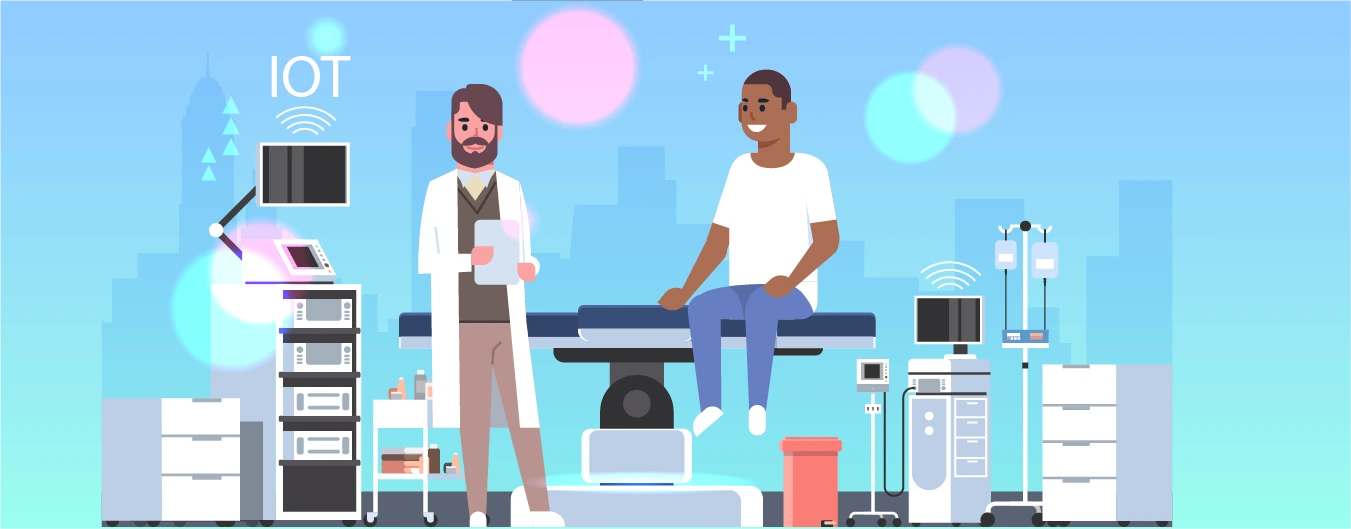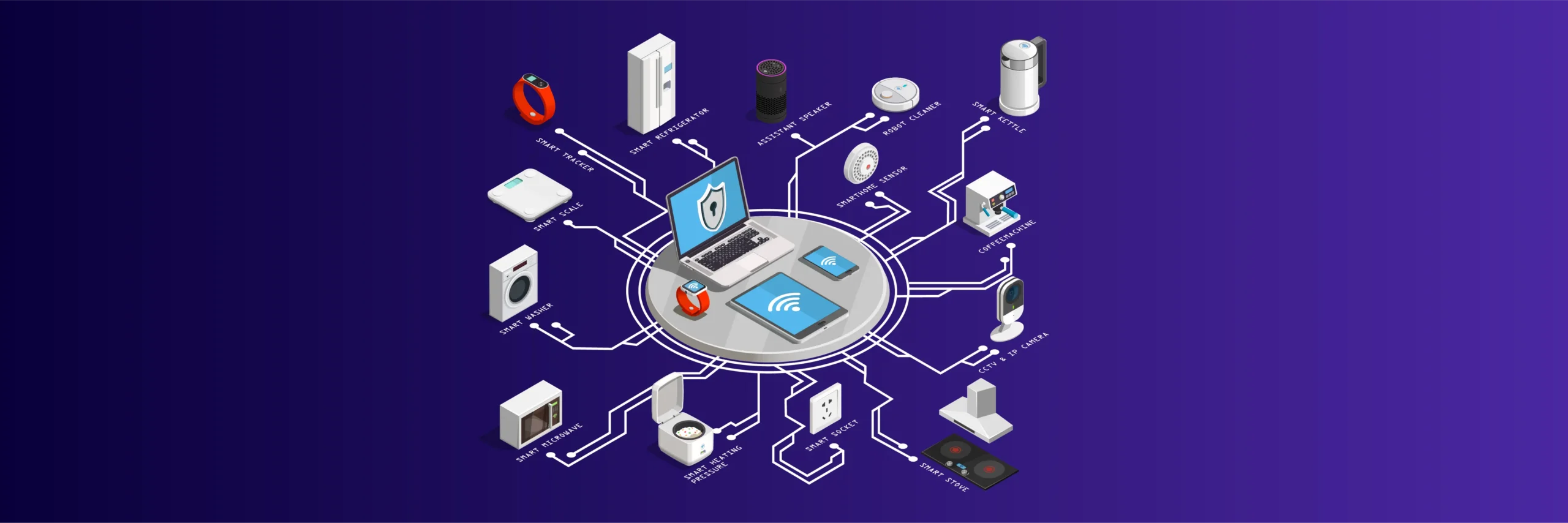
IoT for Smart homes is changing how we live, making everyday tasks easier, safer, and more efficient. From controlling lights and thermostats to managing security and appliances, home automation IoT brings real comfort and control. But to make a smart home system work well, choosing the right IoT Development company is key.
Whether you are a homeowner or a startup, finding the best IoT partner for smart home app development can make a big difference. A trusted company that offers strong IoT development can make a big difference.
A good company will provide strong IoT development services for smart home startups, with the skills to build reliable, user-friendly apps. If you are wondering how to choose an IoT development company for smart home solutions or what to look for in an IoT developer for a smart home system, this blog will help.
We will cover all the important factors to help you select the right partner for your smart home success.
The global IoT market is rapidly expanding, transforming key sectors with smart connectivity, real-time data, and automation-driven solutions.
Before choosing an IoT development company for a smart home project, it is important to know what you want to achieve. Are you trying to save energy, improve security, or create a new smart home product? Clear goals help guide your project in the right direction and make it easier to choose the best IoT partner for smart home app development.
Set goals that are easy to measure and match your business needs. A smart plan is just as important as good technology.
Here is a quick guide to help you set clear goals and choose the right IoT partner for your smart home project.
Not all IoT projects are the same. A smart home system is very different from a factory setup or a farm network. That’s why it’s important to choose an IoT developer for a smart home who has the right skills and understands smart home needs.
When picking the best IoT partner for smart home app development, make sure they have hands-on experience with home automation IoT. It ensures your project is built in the right way, that is, secure, fast, and reliable.
Here’s a quick guide to help you check their technical skills:
Home automation IoT needs more than just a mobile app; it needs strong hardware, smooth connectivity, powerful software, and ongoing support.
That’s why you should look for an IoT development developer for a smart home that can handle everything from ideas to launches and beyond. A full-service partner will make the process easier and ensure all parties work well together.
Here’s what to look for in an IoT development company for smart home startups:
When starting with IoT for smart homes, you might begin with just a few devices, such as smart lights, locks, or thermostats. But as your needs grow, your system should grow too.
That’s why choosing an IoT development company that builds for the future is so important. A good partner will design your smart home system so it can easily expand without needing a full rebuild.
This is called scalability, and it is more than adding more devices and handling more users, more data, and more advanced features.
Here are the following key points to look for better Scalability:
When it comes to IoT for smart homes, security is not optional; it’s essential. Since smart home devices share data across multiple systems, they create many points where cyberattacks can happen. A reliable IoT development company must build strong security in every part of the system.
Choosing the best IoT partner for smart home app development means making sure they follow industry standards for safety and compliance. From device firmware to cloud connections, everything must be protected.
A professional IoT development company will also understand data privacy laws and help ensure your smart home app follows the latest compliance rules.
These are the following key features to expect from your IoT partner:
For smart home systems to deliver full value, they must work smoothly with the tools you already use. Whether it’s mobile apps, cloud platforms, or data dashboards, seamless integration matters. A top IoT development company will know how to connect new smart home devices with existing platforms for better control and visibility.
In IoT for smart homes, good integration means your devices talk to each other and to other software in real time. It improves automation, saves time, and makes your system easier to manage.
Here are the services your IoT partner should offer:
In the world of IoT for smart homes, speed matters. A smart idea is only valuable if it reaches the market on time. That’s why you need an IoT development company that can build and test your product quickly.
With rapid prototyping, your IoT partner creates a working model fast.
It lets you test your smart home app or device, get feedback, and make changes early, before spending big on full development.
Using an MVP (Minimum Viable Product) approach, you can:
Every smart home project is different. That’s why it’s important to find the best IoT partner for smart home app development, someone who can build a solution just right for your needs.
Off-the-shelf products may not work for your goals. A good partner will customize the app, the device software, and the dashboard to match how your smart home system works.
Also, check if they offer flexible work models such as full projects, hourly work, or dedicated teams, so you can pick what fits your budget and timeline.
Here’s what to look for in an IoT developer for a smart home:
Launching your IoT for smart homes system is just the beginning. Real success comes from ongoing care, such as updates, monitoring, and quick fixes when things go wrong.
That’s why it’s important to work with an IoT development company that offers strong post-deployment support. IoT devices need to be maintained regularly to stay secure, efficient, and up to date. Without support, your system may face issues that hurt performance or user trust.
Look for these key support features:
The IoT landscape is rapidly evolving, with new technologies and frameworks emerging regularly. Your partner should demonstrate a commitment to innovation and continuous improvement.
Review their product and technology roadmap. Do they invest in R&D? Are they exploring edge AI, digital twins, or blockchain for IoT?
An innovative partner ensures that your solution stays competitive and relevant in a dynamic market.
IoT projects can incur hidden costs if pricing is not transparent. Ensure your partner provides clear, itemized pricing for development, licensing, cloud usage, maintenance, and support.
Understand the Total Cost of Ownership (TCO) over time. A transparent cost structure builds trust and helps with better financial planning.
Often overlooked, cultural alignment and communication style can make or break a partnership. The right IoT partner should:
Choosing the right IoT partner is a big step. It affects both your smart home project’s short-term success and its long-term growth. By checking key areas such as technical skills, security, scalability, and support, you can reduce risks and make smarter decisions.
The best IoT partner for smart home app development is not just someone who builds apps. They are true partners in your digital journey. So, take your time, ask the right questions, and pick a team that shares your vision.
At Telepathy, we offer flexible, end-to-end IoT development services for smart home startups. From first idea to full deployment, we are with you every step of the way.
Technical Content Writer
Kavita has a strong background in technology and writes about cybersecurity, software development, and digital marketing. She makes complex topics simple and easy to understand. Her content helps businesses, developers, and marketers learn about cybersecurity threats, best practices, software development, and digital strategies to stay informed and succeed online.



